The high from the highest Olympic medal tally, at the recent Tokyo Games, including the gold medal clinched by javelin thrower Neeraj Chopra, is still making waves. And now the stage is set for the paralympians who are geared up to fight all obstacles in their battle to bring laurels for the country! So let’s hear it for the Indian Paralympians who have set foot in Japan, for the Games that are scheduled to begin on August 24.
My husband, an Army officer is the reason I could qualify: Simran Sharma
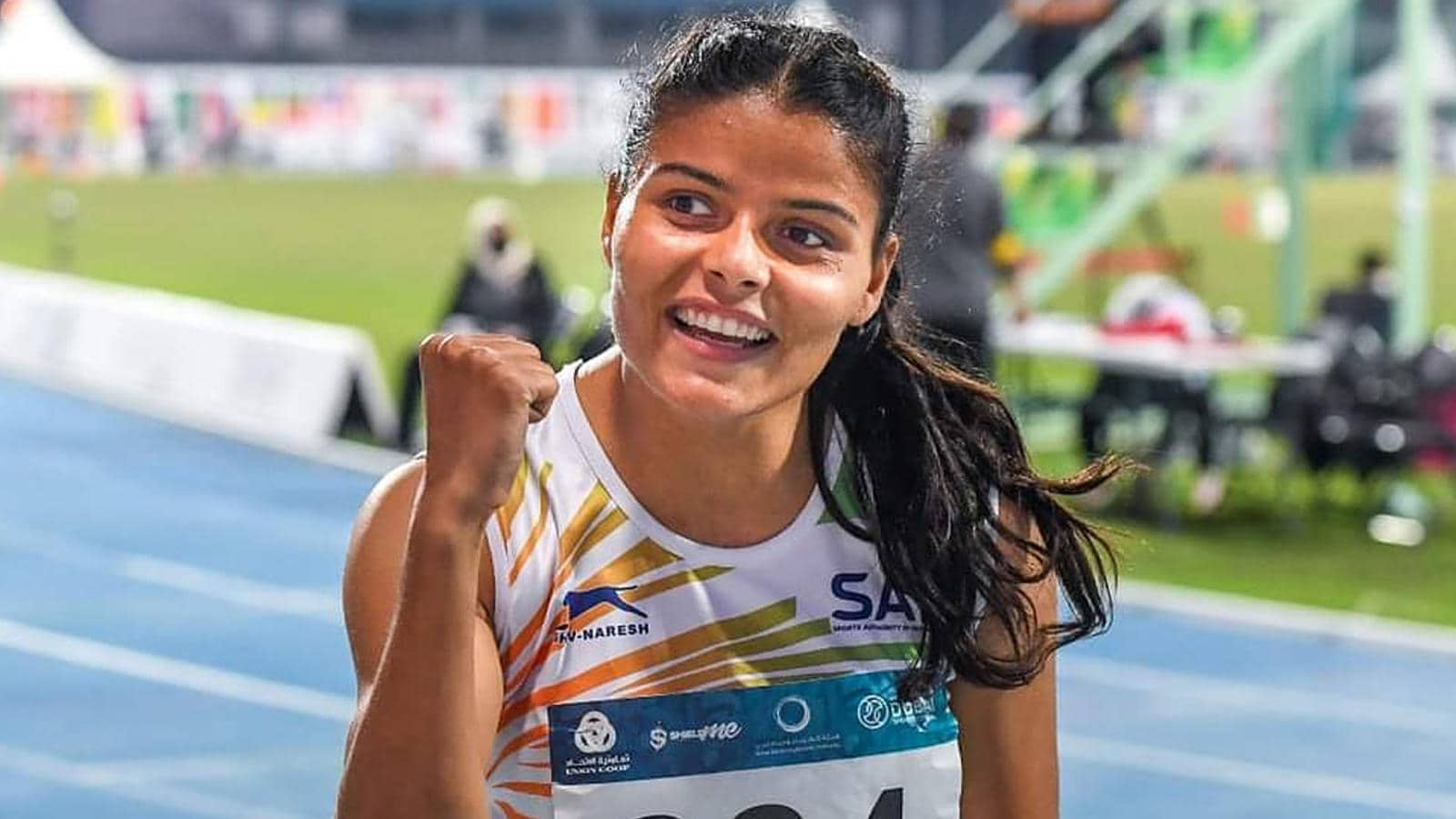
Born with a poor vision and semi-developed ears, Delhi girl Simran Sharma faced adversities, only to emerge stronger. Today, at the age of 22, she has scripted history by becoming the first Indian woman to qualify for 100-metre track event in Tokyo Paralympics, and credits her husband and coach, Naik Gajendra Singh of Indian Army.
“I got married in 2017, and my husband, who is himself a long-distance runner, would inspire me to run too. But there were many issues, including rudimentary ideas of people. They would tell my husband ‘Bohot open ho, biwi ko chhote kapde pehnate ho, bhagne dete ho, sharam nahi aati (You are too open-minded, your wife wears short clothes and you let her run, aren’t you ashamed?)’. But, he always supported me,” says the runner.
When it came to providing financial support, “he took a loan and even sold his plot”. “My husband always wanted to be an athlete, but we couldn’t afford to invest in two people. So he started telling me that he will think about his own dreams when mine are fulfilled,” she smiles, stating how there were bigger challenges to be met. “Is saal February me mai ek event me participate karke ghar ayi aur pata chala mai Covid positive hun. Mai bahut darr gayi thi. My trials for Paralympics were nearing, and the virus took away my strength. I would get breathless in training. Plus, no gyms were open, so we had to train at home. And Gajendra’s entire focus was on my diet and my preparation. He would clean, cook, and do everything, that too after completing his own work. And he is the only reason why I could perform well in the trials and qualify,” adds Sharma.
Happy to see more women partake in sports, Sharma says there is only one thing to do. “We definitely need more funding opportunities for people who come from underprivileged backgrounds, especially women. Many female athletes feel competing on a national level is enough. But I always tell people to never be satisfied and always aim for more. Only when we do so, will the next generation feel inspired to take up sports and break free from stereotypes. I hope I win a medal and make my country, and my community, proud,” she adds.
Look up to Sachin, and stay calm under stress: Pramod Bhagat
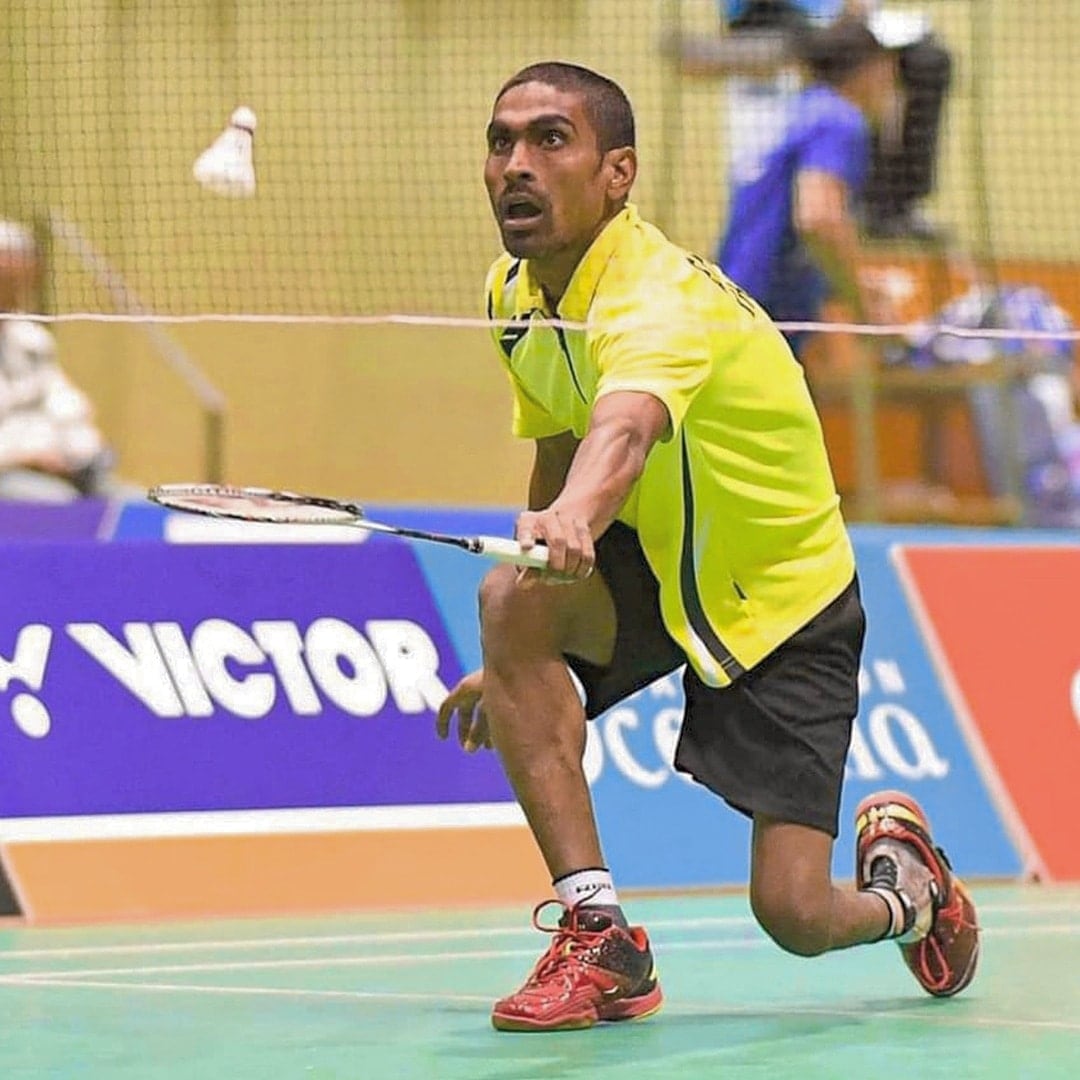
The shine from dozens of medals that parashuttler Pramod Bhagat has won over the years, blinds one from noticing his left leg that developed polio when he was five. Apart from decimating his opponents on the court, the 32-year-old hopes Tokyo Paralympics will be a watershed moment for paralympic athletes and India will have its biggest medal haul yet.
“I don’t want to misuse the opportunity that has been given to me, and I hope to do my best this year. The government has made many efforts in the last few years, especially after the Rio Olympics. Hamari liye kathinai kamm ho gayi hai, but abhi thoda cover karna baki hai,” says the Arjuna awardee, who was recently nominated for Khel Ratna. “It’s an honour but right now, I don’t know if I’ll be awarded or not. But I’m sure if I win a gold medal, the chances of being bestowed with the honour will increase. So it is, in a way, an incentive for me to do even better at the Paralympics,” he adds.
He likes to see his glass half-full, and his approach to the pandemic is the same. “Of course there were issues when it came to practising and maintaining our fitness levels, but the pandemic also allowed me to spend time at home with my family and siblings, which is a change from staying out all the time,” says Bhagat, who feels fortunate to have been at his home in Odisha, where he could spend time with his mother, who passed away last year.
As he gears up for the Paralympics, the only thing that scares him is the virus itself. “Main game mein jeeta hoon, toh mujhe competition ka darr nahi hai (I live in the game so competition doesn’t scare me). I just have to make sure I stay safe and don’t get Covid-19. I look up to Sachin Tendulkar, and just like him, try to stay calm under stress,” he adds.
Drawing has helped me deal with stress: Ekta Bhyan
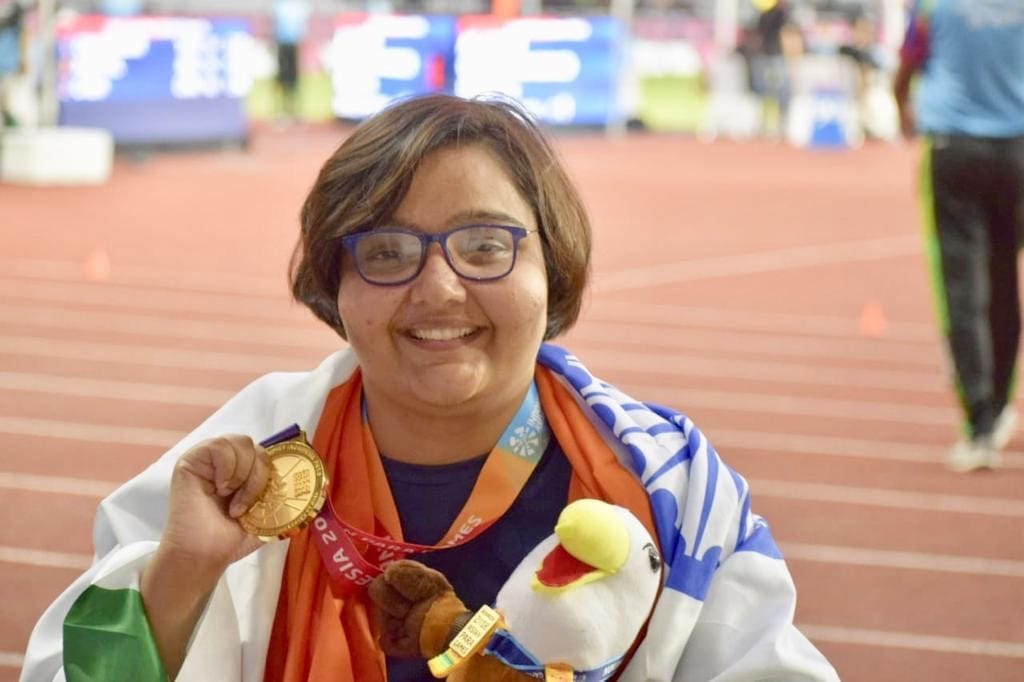
For almost 18 years now, Ekta Bhyan has been using a wheelchair, after a road truck accident left her quadraplegic, with complete paralysis of her lower limbs and partial paralysis of her upper limbs. Now at 36, the paralympian is set to test her mettle at the Tokyo Paralympics, in the category F51 of the club throw event.
“Like any athlete, it was a dream to represent my country at the greatest sports event in the world and I’m waiting to give my best,” she says, adding how all her efforts have culminated in this historic moment in her life. “I’ve always wanted to be independent and decided I will take life on my own terms and make myself self-sufficient using education. After spending 9 months in the hospital post my accident, I decided to resume my studies and eventually cracked the HCS examination. In 2014, I started training for club throw, under Amit Saroha, who is an Arjuna awardee para-athlete, and went on to win a gold at the Asian Para Games in Jakarta,” she reminisces.
The pandemic has been hard for her training, and Bhyan who has a spinal condition, says she has had to be more careful than everyone. “My lungs are weak owing to my injuries, and I have a lower immunity. So I had to be more mindful of my surroundings and not leave home when the pandemic struck. But being wheelchair bound, I do need assistance when I train, so it was pretty hard to manage. For almost 9 months I couldn’t go to the ground to practice,” she recalls, and adds that she had made basic training arrangements at home in Haryana’s Hisar.
A civil servant by profession, she also believes in keeping her mind sharp, and says, “Drawing has helped me deal with stress. I’ve also been writing poems since the last few years, so having an outlet through words is what keeps me going.”
Preparing for her chance to shine at the Olympics, Bhyan feels ecstatic that there are more women representing different sports this year. “It’s a positive picture this year at the Olympics, as there is a greater gender parity. But in para sports, women are lagging behind. We need to have the same representation in Paralympics as well,” she says, asserting that there needs to be greater focus on differently abled in terms of creation of opportunities. “People (who are differently abled) are still not part of mainstream. We need to assure them quality of life and work towards eliminating the negative outlook that society has towards them,” she opines.
Army life helped me stay focussed amid challenges: Soman Rana
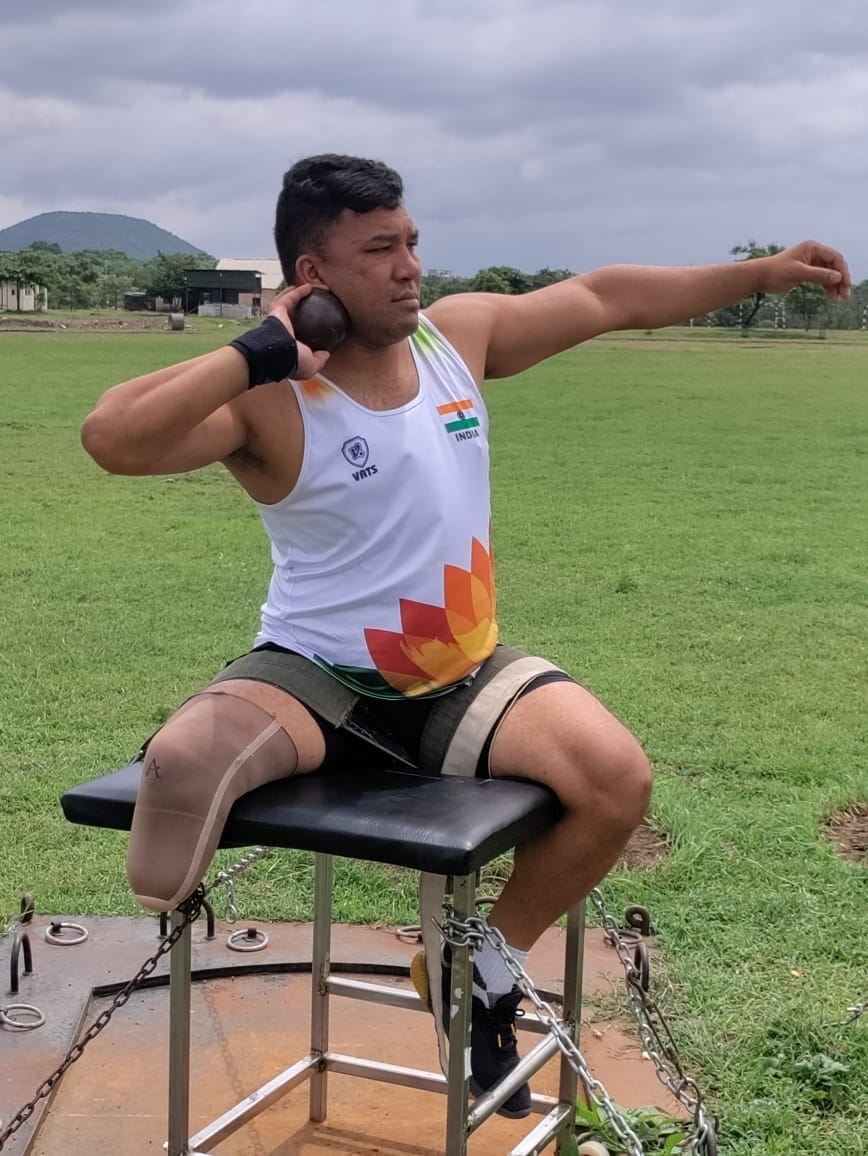
For shot put athlete Havildar Soman Rana, staying committed to the sport in the face of adversity is what helped him qualify for the Tokyo Paralympics, and continues to drive his target to bring back a medal for the country. “When I had picked up shot put, I never imagined I would be preparing to participate in the Olympics! It’s an honour,” says Rana, who has been selected in the seated shot put, F 57 category.
On 1 December 2006, while serving with his unit in Jammu and Kashmir, Rana lost his right leg in a mine blast injury. But that didn’t deter his sporting ambition! “I used to play sports in school as well, and loved to be on the ground. Losing my leg was a big setback, but I decided to never let the injury keep me down. Being a soldier does make you stronger. In 2017, I picked up the shot put and put my efforts towards it. I am glad that I could continue playing and practising amid the pandemic also,” he says.
His time in the armed forces has been pivotal to his outlook on life. “Pandemic was difficult since we had to practice while maintaining social distance, and I do need assistance on the ground. At the Army Paralympic Node in Pune, all para-athletes are trained holistically, with focus both on mind and body. Army life helped me stay focussed while there was a period of uncertainty regarding the Tokyo Olympics – I have a schedule where I wake up early, practice on ground, and work on my fitness. Plus the bigger task is to keep one’s morale high. For that, I take time out to watch movies, listen to songs once in a while, but abhi focus training pe hi hai.”
Rana believes his recent successful participation in events has emboldened his endeavour. “This year I took part in a few competitions, and won a gold medal in Tunis World Para Athletics Grand Prix and two gold medals along with a silver medal in XIX National Athletics Para Championship. So thankfully I am going to Tokyo with a lot of confidence, but as an athlete, I do wish things would go back to normal soon,” he adds.
Lifted LPG cylinder and cycle tyre tubes to stay fit during lockdown: Devendra Jhajharia
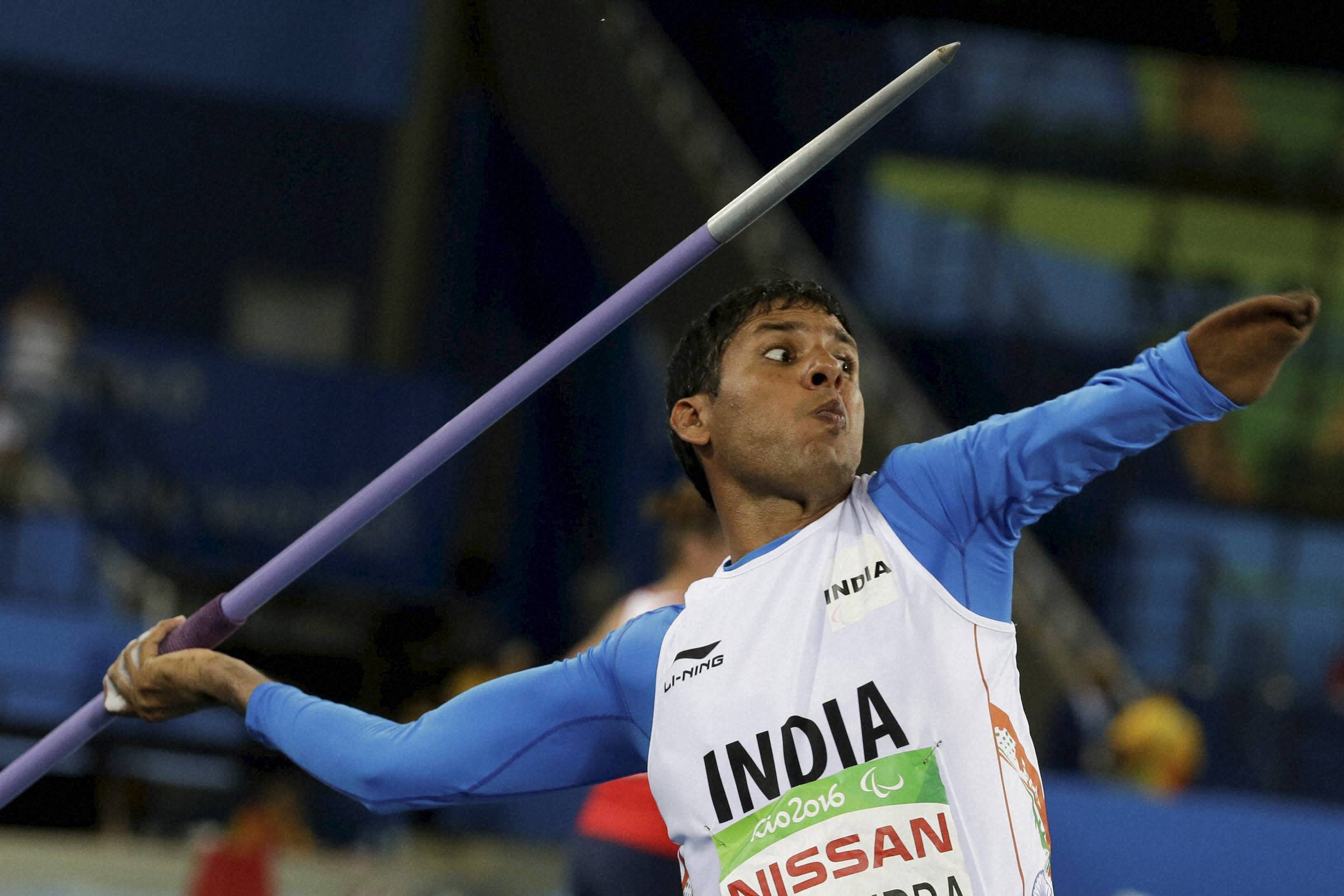
When he was eight, a shock from a live wire caused him to lose his left arm, almost up to the elbow. Today, 40-year-old Devendra Jhajharia is one of India’s most accomplished paralympians. Vying for his third paralympic medal, as he prepares to compete at Tokyo Games, he says: “I feel extremely happy; of course this Olympics will be very different from the past events but I am just hoping to give my best,”
The javelin thrower, who is currently training at SAI centre in Gandhinagar, lost his father to cancer in October 2020, and thus his Paralympic qualification was a bittersweet moment. “My father was one of my biggest cheerleaders. He dreamed of seeing me compete at Tokyo, and would often talk about it. I hope to win a medal to pay a tribute to him, and to make my country proud,” says Jhajharia, who had no access to gyms when the pandemic struck last year, and was forced to make do with whatever he found at home. “I had never been away from a javelin for so long! And I couldn’t afford to gain weight because that slows me down. So I would lift a LPG cylinder and work out with cycle tyre tubes! I believe where there is a way, there is a will,” he says, adding that his family is his biggest support. “My wife was a national level kabaddi player, so she understands the zeal that drives us. My 10-year-old daughter also understands the importance of the Olympics but my younger son, who I video call and talk to, just keeps saying ‘Papa bas ab ghar ajao (Papa come home now)’”.
Adamant to prove the naysayers wrong, he hopes his sacrifices bear fruit! He says, “Many people told me that I’m now too old to compete, but I believe age is just a number. And I’m constantly working on myself. At the national trials in Delhi, I improved my own world record, and I know that I have it in me to bring laurels for my country, once again!”
Author tweets @bhagat_mallika
Follow more stories on Facebook and Twitter
Stay connected with us on social media platform for instant update click here to join our Twitter, & Facebook
We are now on Telegram. Click here to join our channel (@TechiUpdate) and stay updated with the latest Technology headlines.
For all the latest Sports News Click Here
For the latest news and updates, follow us on Google News.
